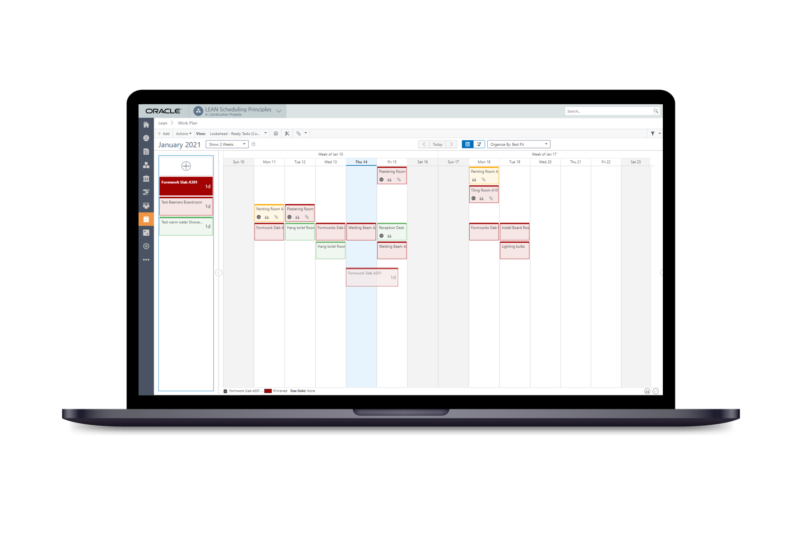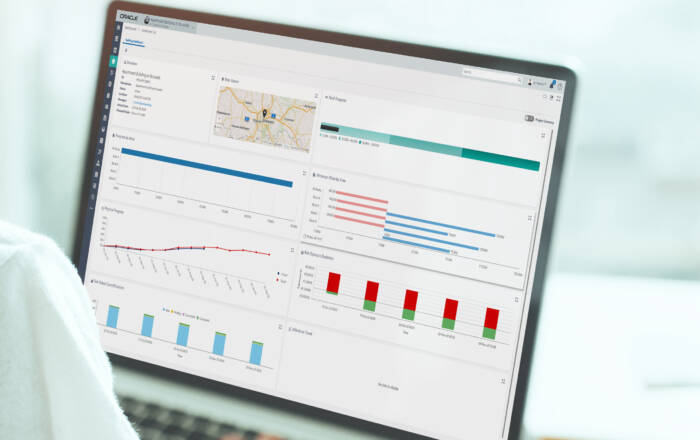
Is Oracle Primavera Cloud a good replacement of Primavera P6?


I have an RFP for a scheduling tool in front of me. A long and knowledgeable list of functionalities that the perfect scheduling tool should have. The list motivates me to start writing. Sadly not to fill in the list, but to write this blog post about why I don't feel like completing it.
When investigating a scheduling tool, or any software tool, experienced users tend to compare the functionality of the new tool with the tool they currently use. Your average RFP table will typically contain functionality known and requested by the users. Often these requirements are detailed and conservative. I remember reading a book where they called this kind of end-users involved in software selection "See-Mores" because they always want to see more before they can be convinced.
In the scheduling world, any scheduling tool is being compared to Primavera P6, the de-facto standard to schedule complex projects with its very deep and robust functionality. P6 is almost unbeatable in RFP’s or demos to end-users. No tool covers P6 functionality better than.... P6.
What's new?

No tool will ever score better on Primavera P6 functionality than... P6. If we keep evaluating scheduling tools against Primavera P6, a status quo will be maintained.

Oracle Primavera Cloud
Oracle Primavera Cloud is the next generation scheduling tool by Oracle. It is originally built with a game-changing vision around integrated project controls and collaborative planning. A vision that we strongly advocate. OPC did not have its big breakthrough yet to replace Oracle Primavera P6 because end-users still miss some features.
I feel that Oracle has somewhat switched their strategy from making a game-changing scheduling tool to pleasing the See-Mores. They are currently doing their very best to close the gap between both tools in terms of functionality. Global change, cost-loading schedules in time-consuming P6 style, store period performance,... are all being developed at a rapid rate. I get it from a commercial point. However, the idealist in me prefers the original game-changing vision of OPC and hopes that people will ultimately opt for a scheduling tool because of the value it adds and not because it looks like Primavera P6.
Fourteen good reasons
So here are fourteen reasons why anyone should (at least) consider Oracle Primavera Cloud as your scheduling solution and potential P6 replacement.
Unlike Primavera P6,...
- OPC links to scope and allows us to measure scope % complete. (By the way, the scope app really needs to be revised. The idea is value-adding, but it is cumbersome to use. Unfortunately, it seems not to be on the high-priority See-More list as it is no P6 functionality).
- OPC offers the functionality to have calculated fields (like MS Project). This gives endless possibilities for KPI’s.
- OPC stores historical data. This enables trend analysis and schedule comparison against any point in the past. No more need to open a separate tool for analysis or to enforce to make baselines to store history. Also towards delay analysis, the impact of having historical data is enormous.
- OPC has a built-in schedule health check that is available with one click on the button and pops-up in a panel on the right-hand side of your screen, where you can directly navigate to the activities in the schedule that have a warning and should be checked.
- OPC has percentile schedules (P80 for example) readily available to be shown in the Gantt chart because of the inclusion of a Monte Carlo simulator. No import / export required.
- OPC includes lean scheduling functionality. This allows to develop detailed schedules in a more collaborative, commitment-based way. The strength of OPC is that lean scheduling and traditional CPM scheduling are fully integrated in such a way that that steering the daily work and realizing project objectives becomes one single plan..
- OPC has project level resources. This solves a common frustration of some clients because resources in P6 are always on enterprise level and the resource library can be quickly polluted.
- OPC allows you to level roles, next to resources.
- OPC has integrated BI functionalities. Both dashboards and reports are directly available. A report can even be opened with a single click straight from the GANTT chart.
- OPC has better functionality to manage baselines. Adding additional scope of work to both current schedule and baseline can be done easily by using the “Get Activities” functionality. No more “Restore baseline”, copy-paste activities and convert back to baseline.
- OPC made scenario analysis simpler. Any user can quickly investigate the impact of a potential change without impacting the real schedule. The scenario can be converted to the current schedule if the outcome is beneficial to the project
- OPC allows you to calculate and monitor measures from activities and risk at project level. This allows you to have a direct view on the KPI’s of your projects and their evolution!
- OPC has a discussion feature that allows you to comment, tag people and reply on any kind of object (activity, risk, project, tasks, constraints, …) within the environment. It enables project team to communicate / collaborate in a very precise and up to date way.
- OPC is cheaper. I know, this is an odd one in this list, but it is added because it might be unexpected. OPC is a cloud native multi-tenant solution and, while it clearly offers more functionality, it is priced favorably compared to P6.
That is rather impressive list, if you ask me. And the good news is that this list is going to get longer too as Oracle is still intensely developing OPC to satisfy both See-Mores and idealists.
Contact us to have a demo of Oracle Primavera Cloud.
Email us
Ask the expert
Our experts can be contacted for any enquiry about Oracle Primavera Cloud or project controls in general.




